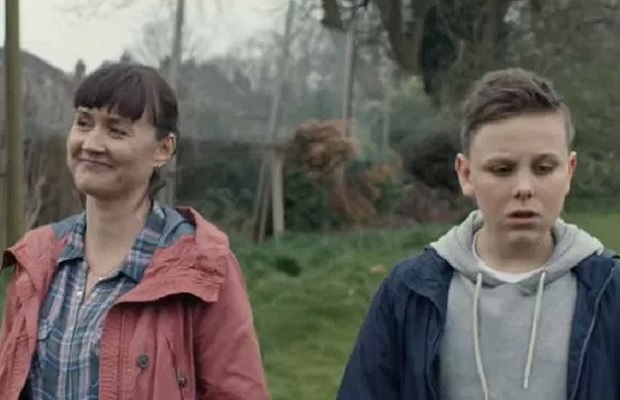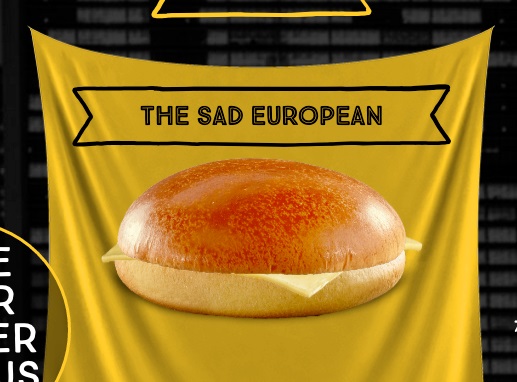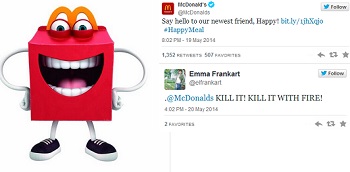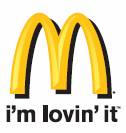- Submitting a case study? Email CaseStudies@DigitalTrainingAcademy.com
- Booking a course? Email Tutors@DigitalTrainingAcademy.com or call +44 (0)20 7244 9661
- Apply for a training needs assessment
Digital marketing industry case study library
Browse case studies by topic
Case studies library
- Case studies
- - Advertising
- - Ecommerce
- - Healthcare and pharmaceutical
- - Mobile marketing
- - Search
- - Social media
- - Sport
- - Travel
- - Viral
- - YouTube
- All other case studies
- Daily digital marketing news
Training services
- In-company training
- Executive coaching
- Marketing courses
- Current participants
- Graduate services
- About us
- Case study library
Consultancy and research
Mcdonalds case studies: we currently have 11.
Any agency or media owner can submit case studies to our team and these 11 are the strongest we have received, with the most recent case studies at the top of this page. If you're interested in more digital marketing case studies then review our complete case study library. If you're interested in submitting case studies then email our case studies manager to find out more CaseStudies@DigitalTrainingAcademy.com.
Viral marketing fail: McDonald's pulls controversial video child bereavement ad
McDonald's has withdrawn a controversial video ad after a huge social media backlash, with one charity accusing it of exploiting child bereavement.

01/06/2017 | Full story...
Samsung “most trustworthy Olympics sponsor brand”- survey
Samsung is the most trusted Olympic sponsor brands among UK consumers, while McDonald's is the least trusted, according to new research.
05/09/2016 | Full story...
McDonald’s fail: Name your own burger site attracts tasteless creations
Clearly not learning lessons from “Boaty McBoatFace”, McDonalds New Zealand launched a "Create Your Taste" campaign that resulted in a number of highly offensive burger names appearing on its official site. This case study looks at the social media fail...

21/07/2016 | Full story...
Social media fail: McDonald's refuses Burger King truce in ‘McWhopper for peace’ bid
In a novel marketing stunt, Burger King invited McDonald's to put aside rivalries for just one day, and make a 'McWhopper' for World Peace Day. But all did not go to plan as its larger rival refused to bite the bait…
27/08/2015 | Full story...
McDonald’s Super Bowl strategy: ‘Pay With Lovin’ and Twitter ad break giveaways
At this year’s Super Bowl, McDonalds certainly took the prize for most innovative digital aspect of a campaign, with a two-pronged social media strategy to get people engaging with the brand while watching the game. The fast food chain used its 2015 ad to announce that it will let random customer pay with funny and heart-warming gestures rather than cash. This was followed up with tweets that pledged to giveaway all other products advertised during each ad break- from Toyota cars to superglue.
04/02/2015 | Full story...
Twitter fail: New McDonald’s mascot terrifies Twitter

McDonald's latest mascot ‘Happy’, aimed at promoting healthy eating for children, has caused a stir on social media for all the wrong reasons- with many judging the character as ‘terrifying’. The mascot has launched in the US, modelled off the Happy Meal box, with the aim of encouraging kids to eat more fruits, vegetables and low-sugar beverage options like milk and water- foods not commonly associated with the fast food chain. The fast food giant says it “brings fun and excitement to kids’ meals while serving as an ambassador for balanced and wholesome eating.” However, judging by the reaction on social media, it's inspiring more fear than excitement since making its US debut.
21/05/2014 | Full story...
SnapChat marketing case study: McDonalds hires LeBron James for mobile 'story'

In March 2014, McDonald’s became the latest brand to run a SnapChat marketing campaign, using NBA star LeBron James to generate buzz on the popular self-destructing photo-sharing app. This case study looks at how the fast-food brand generated thousands of new followers within hours of announcing the stunt.
02/04/2014 | Full story...
McDonalds ‘Happy Table’ uses NFC for in-store mobile games
McDonald’s is experimenting with Near Field Communication with a new in-store mobile game that is activated when a user places their device on one of the tables. Targeted at children and dubbed ‘The Happy Table’, the technology is being tested in a McDonald’s in Singapore. Created in partnership ,with agency advertising agency DDB, users can a mobile phone over a table to activate a mobile game.
Brand: McDonalds | Sector: FMCG, Food and Beverage | Country: Singapore | Agency/Partner: DDB | Objective: brand awareness, consideration and purchase | Format: Gaming, Mobile
17/09/2013 | Full story...
Mobile marketing case study: McDonald's app tracks origin of food
Amid growing uncertainty about the origin of mass-produced food, this timely McDonald’s app turns users' iPhone’s into an ingredient tracker. McDonalds partnered with DDB Sydney to launch the TrackMyMacca’s app in Australia. By using the camera feature of their iPhone, iPad or iTouch, diners can scan the image of the particular food item they have purchased. Using GPS and the free Wi-Fi in McDonald’s outlets, as well as taking note of the date and time, the app is able to access the company’s supply chain. It can, for example, identify the source of ingredients used to create the meat patty in a customer’s quarter pounder, right down to the particular cattle farm.
More on this case study…
Brand: McDonalds | Sector: Food, FMCG, retail | Country: Australia | Agencies: DDB Sydney | Objective: Build brand engagement | Format: Mobile |
14/02/2013 | Full story...
Case Study: McDonald's | Media: MSN | Country: Finland | Sector: Food | Objective: Optimisation, targeting | Format: Targeting
 Groundbreaking econometric modelling from Brand Science has established online advertising’s impact on McDonald’s offline sales and helped to boost Return on Investment (ROI) by optimising media choices. Following hugely successful campaigns in Denmark and Sweden, McDonald’s extended the strategy to Finland – with spectacular results.
Groundbreaking econometric modelling from Brand Science has established online advertising’s impact on McDonald’s offline sales and helped to boost Return on Investment (ROI) by optimising media choices. Following hugely successful campaigns in Denmark and Sweden, McDonald’s extended the strategy to Finland – with spectacular results.
Download the MSN case studies compendium
26/04/2010
Case study: McDonald's | Sector: FMCG | Objective: Brand awareness, customer acquisition | Format: Banners
 McDonald’s added interactive advertising to the media mix, which also included radio, print, and TV. By increasing online advertising's reach by 60%, McDonald's boosted product awareness by 8.3% among the 18-49 media target. This lift resulted in 6m more consumers becoming aware of the product. Online makes a real contribution to multichannel campaigns by reaching the same consumers in another complementary environment. It also reaches people other media can't. Among McDonald's target market, the 20% who are not heavy television users are reachable online.
McDonald’s added interactive advertising to the media mix, which also included radio, print, and TV. By increasing online advertising's reach by 60%, McDonald's boosted product awareness by 8.3% among the 18-49 media target. This lift resulted in 6m more consumers becoming aware of the product. Online makes a real contribution to multichannel campaigns by reaching the same consumers in another complementary environment. It also reaches people other media can't. Among McDonald's target market, the 20% who are not heavy television users are reachable online.
Download McDonald's case study
01/08/2007
Case study topics
- 1upSearch
- 20th Century Fox
- 3
- AA
- Adidas
- advertising
- advertising creative
- advertising spend
- Africa
- AIS
- AKQA
- All Nippon Airways
- analytics
- Android
- apps
- Argentina
- Army
- Asda
- Asia
- Audible
- augmented reality
- Australia
- Autobytel
- automotive
- Avis
- Axe
- banners
- Bayer Healthcare
- BBC
- behavioural targeting
- Belgium
- Ben and Jerrys
- Betfair
- Big Picture
- Blendtec
- Blink TV
- blogging
- BMW
- Bookstart
- brand awareness
- brand equity and positioning
- Brandcast Media
- Brazil
- British Airways
- British Gas
- Bruno
- Burberry
- Burger King
- Buzzfeed
- Cadburys
- Cambria Automobiles
- Canada
- Cannes Lions
- Cannon
- Carling
- Carlson
- CBI
- celebrity marketing
- Centrica
- Channel 4
- charity
- Chemistry UK
- Chile
- China
- click through
- clothing
- Coca Cola
- Colgate
- Columbia
- Compass Interactive
- consumer electronics
- consumer insight
- content marketing
- Creative Lynx
- Crispin Porter and Bogusky
- CRM eCRM and email marketing
- Croatia
- cut through
- Cyprus
- Denmark
- design
- Diageo
- digital companies
- Digital Intelligence
- digital marketing
- Digital Marketing Case Study
- Digital Training Academy
- digital trends
- direct response
- directory
- Dove
- driving traffic
- DTI
- Dynamic Logic
- easyJet
- ecommerce
- eDetail
- education
- EE
- Egypt
- EMEA
- Emirates
- energy
- engagement
- entertainment
- environment
- Europe
- experiential marketing
- Festival
- Fiat
- film
- finance
- Finland
- Fish4jobs
- FitchLive
- Flickr
- FMCG digital marketing
- Ford
- France
- French Connection
- Friends of the Earth
- FuturAd
- g8wave
- gaming and gamification
- Germany
- Gjensidige
- global
- glue London
- Golden Pages
- Google AdWords
- government
- Greece
- Greenlight
- GSK
- H and M clothing
- Habitat
- Halesway
- Handbag
- healthcare and pharmaceutical
- Heineken
- Heinz
- Hewlett Packard
- Hong Kong
- Hong Kong Tourist Board
- Incentivated
- increasing conversion
- India
- Indonesia
- ING
- Inside Mobile
- insurance
- integrated marketing
- interactive media
- Israel
- Italy
- Jaguar
- Janssen Cilag
- Japan
- Johnhson and Johnson
- Johnnie Walker
- JVST
- KDDI
- Kelloggs
- KFC
- Kimberly Clark
- Kleenex
- Kraft
- Kwik Fit
- Lacta
- Langland
- lead generation
- LEGO
- Levis Jeans
- LG
- Life chats
- Lionsgate
- Lipton
- local
- LOreal
- luxury
- Lycos
- M and C Saatchi
- MacMillan
- magazine
- Malaysia
- marketing
- Marketing Evolution
- marketing fails
- Mars
- Mazda
- McDonalds
- Mediacom
- MediaMInd
- Mentos
- Mexico
- Microsoft
- Middle East
- MMA
- mobile marketing
- Monarch
- Mondelez
- Motorola
- MSN
- music
- Nestle
- Netherlands
- NetSupport
- Netthink ES
- New Zealand
- Nike
- Nivea
- Nokia
- Norway
- Norwich and Peterborough
- Nutella
- OgilvyOne
- Oi Media
- online advertising
- online forum
- online media
- online radio
- Oodle
- Oracle
- Oreos
- Outdoor
- Palm
- pay per click advertising
- Pedigree
- Pepsi
- Periscope
- Philippines
- Pixelpusher
- Plumbworld
- podcasting
- Poland
- portal
- Portugal
- Procter and Gamble
- Profero
- publishing strategy
- purchase intent
- Qatar Airways
- QR codes
- R GA
- Radisson Edwardian Hotels
- Random42
- Reckitt Benkiser
- recruitment
- RedEye
- Reebok
- reputation management
- retail
- Revels
- rich media
- Rocksound
- Romania
- Royal Marines
- Russia
- Saatchi and Saatchi
- Sainsburys
- Samsung
- Saw V
- Schering Plough
- Schroders
- search
- search engine optimisation
- security
- Sephora
- Shell
- Singapore
- Skive Creative
- Skype
- Slovakia
- SnapChat
- Snickers
- social media
- Sonaa
- Sony
- South Africa
- South America
- South Korea
- Spain
- sport
- Sprite
- STA Travel
- Starbucks
- strategy
- Stride
- Sweden
- Switzerland
- Sympatico
- Taglab
- Taiwan
- Talk Talk
- Talk to Frank
- targeting
- TBWA
- technology
- technology and software
- Telecommunications
- Television
- Thailand
- The Body Shop
- Tourism New Zealand
- Toyota
- traffic driving
- Transport for London
- travel and tourism
- trend creation
- Tumblr
- Turkey
- TVL
- UAE
- UK
- Unilever
- Universal Pictures
- Universal Studios
- USA
- uSwitch
- Vaseline
- Vauxhall
- VeriSign
- video
- Vietnam
- Vine
- viral
- Virgin
- Visa
- Vodafone
- Volkswagen
- Volvo
- Warner Breaks
- Warner Bros
- Warner Music
- Webcredible
- William Hill
- Windows
- Windows Live Messenger
- Worth
- Yahoo
- youth marketing
- YouTube